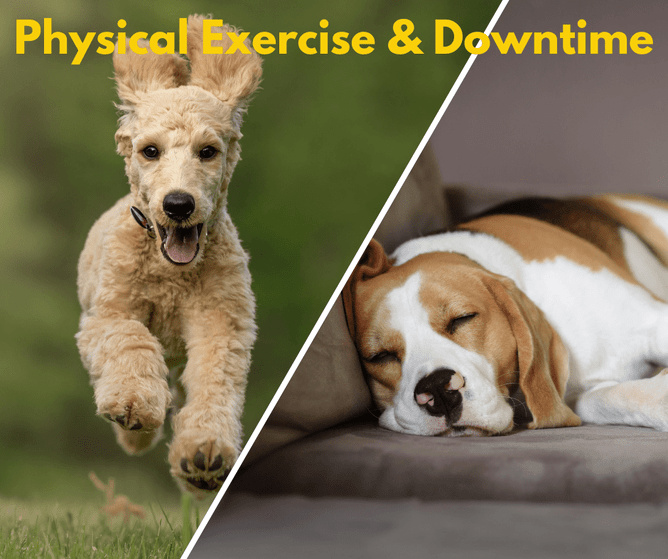Is a Tired Dog a Happy Dog?
All dogs need adequate and appropriate physical exercise with consideration to their age, breed, health, and behaviour. Physical exercise releases endorphins and endocannabinoids, chemicals in the brain thought to be involved in regulating mood and pain.
In a study published in 2012 [https://pubmed.ncbi.nlm.nih.gov/22442371/], Raichlen found that dogs, like humans, experience peak endocannabinoid activity following moderate-intensity exercise. In other words, yes, dogs experience a chemical change like that found in humans known as a ‘runners high’, but we don’t know if dogs experience the same euphoric feeling!
But how much is too much physical exercise? And is a tired dog a happy dog? Or just simply tired? If you train for a marathon, you run further and faster getting fit, but each time taking longer to tire you out.
Running a dog for 5-10kms every day can make them even more difficult to tire out each time you run them. This is not necessarily a good thing if your dog expects this every day.
What is downtime? How can it benefit our dogs? Downtime preference may differ for individual dogs, but it could be sleep, licking, chewing, sniffing and other calm activities that your dog can engage in. Just like we may chill out and watch a movie, dogs can benefit from that downtime too.
Exposure to sunlight can also help animals produce serotonin, a neurotransmitter known to generate feelings of well-being in both animals and humans.
Diet also plays a factor in how your dog is feeling. Gut health and microbes influence mental condition and behaviours such as aggression and anxiety (as well as immune function and overall health) in both humans and animals.
Getting a good balance between physical and mental exercise includes different activities besides the 5km run. Such as having a ‘couch day’ (a rest day where your dog doesn’t go out), or a ‘sniff walk’ where you let your dog sniff a new environment on a long lead.
See what a good balance of physical exercise and downtime can have on your dog’s overall behaviour and mood. They’ll thank you for it!
Happy training!

